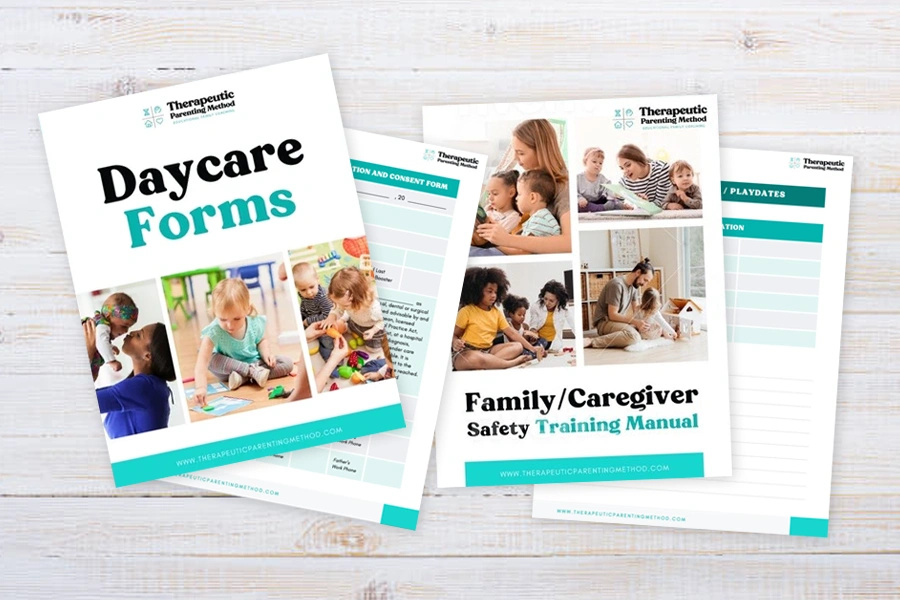It’s that time of year again: parent-teacher conferences.
Whether you have an elementary-aged child or a preschooler, parent teacher conferences can often be painted in a negative light.
In reality, this is a time for you to get on the same with your child’s teacher (if you aren’t already) so you can give your child the best chance for success in the classroom and outside of it.
This guide will give you everything you need to know about…
- Format
- Topics typically covered; and
- Questions to ask
… so you can be well-prepared come conference time.
What Is The Purpose Of Parent-Teacher Conferences?
The purpose of a parent-teacher conference is to inform the parents of the child’s experience at school.
Parent-teacher conferences aim to build and improve the parent-teacher relationship as well as getting everyone more involved in the child’s educational process.
Parents and teachers need to work together and respect each other.
You’ll want to establish what the best way is for the parents and teachers to stay in contact with each other.
For example, “Is it better to call or to email to find out how my child is doing in school?”
This will make it much easier to engage in more conversations about working together in support of the child throughout the year.
Parent-Teacher Conference Format
In preschools, these conferences should occur twice a year for about 30 minutes each.
A mid-year meeting for the teacher to talk about:
- How the child has transitioned into the class
- Any goals for the end of the year for the child
An end of year meeting will also typically be held for the teacher to describe:
- The entire year
- Discuss goals for the next year
It is important to keep in mind that teachers will typically not say, “this is normal” for your child because the child is still at an early age.
They mostly provide more color into the child’s:
- Capabilities.
- Strengths.
- Goals.
The teacher may or may not prepare a written, formal report on the child. This varies depending on the specific preschool.
If after the conference you find that you have any concerns or merely want to learn more about your child, offering to volunteer to help out in the class is a tremendous support to the teacher, as well as a way to view the child in the preschool environment.

Parent-Teacher Conference Tips
The most important tip of all is to be sure to listen carefully and respectfully at the conference.
Try to remain objective and reasonable about what you are hearing.
Be appreciative of what the teacher is saying while being upfront and honest about thoughts without becoming defensive.
Keep these tips in mind for a successful preschool parent-teacher conference:
- Be on time, respectful and upfront with your views.
- Think about the conference ahead of time and write down all the questions and points you would like to cover.
- If you think your child is able, tell them you are going to be speaking to a teacher and ask if he/she has any topics or questions.
- Try not to put the teacher on the spot asking questions such as, “Is this normal? What percentage do you think the child is at?” This is preschool and some of the teachers may not be certified or able to answer such questions.
Remember—this is preschool.
The goal is to expose your child to:
- Socialization
- Rules
- Beginning education
Set realistic expectations of what the teacher is going to tell you and what you will do with this information once you get home to your child.
A good relationship with your child’s teacher is of utmost importance in helping your child to succeed.
Ask the teacher if he/she would communicate immediately if any other issues, concerns or questions come up after the conference instead of waiting.
Let the teacher know that the same will be done from the parent’s side.
What Topics You Can Expect During Conference Time
During your parent-teacher conference, you’ll discuss a variety of topics regarding your child’s behavior and learning.
Be prepared to explore:
- How the child is doing in all areas in school — physically, emotionally and educationally, like:
A broad overview of the program as the child is involved
Any goals for year for the program
Any concerns or issues that the teacher has in regards to the child, like aggression or shyness
- Examples of any school work or tests to show the areas where the child is excelling and the areas where the child could use some help from the parents
- Any questions the teacher has about the child and his/her experience in the school, like:
What does your child say about school?
Is there anything your child has said he/she likes or dislikes?
What kind of things does your child like to share when getting home from school?
How is your child’s demeanor when going or leaving school?
Does your child overall seem to enjoy school?
Being prepared for topics beforehand can help you gather your thoughts and not allow your emotions to rule the time with your child’s teacher.

Questions To Ask At Parent-Teacher Conference
As you prepare for your conference, you may be wondering about good questions to ask teachers.
This is the time for you to get the most accurate picture of your child during the school day, so don’t be afraid to ask questions.
From behavioral, learning, friendships—there are lots of topics to cover and don’t worry if your list of questions is stretching on and on.
Pick a few that are most important to you, write those down in a notebook, and make sure to ask those first.
Consider questions like:
- How is my child doing with the other children in his/her class?
- Can you give me some examples of how you encourage my child to engage with the other children?
- How is my child doing with the teachers?
- What does my child seem to like the most at school?
- Is there anything my child does not like?
- In what areas has my child grown the most during school this year?
Explore other areas of development and how you can support your child’s teachers efforts in the classroom at home.
Open up discussion by asking:
- What ways can we enhance his school experience at home? How can we best support your program at home with the child?
- Have there been any discipline issues?
- If there have been discipline issues, discuss how the situations were handled and be upfront with personal views on discipline.
- Are there any areas of weakness or problems at school? Can you give me some examples of how you have handled these and how my child reacted?
- What are the best ways we can be involved in the class?



